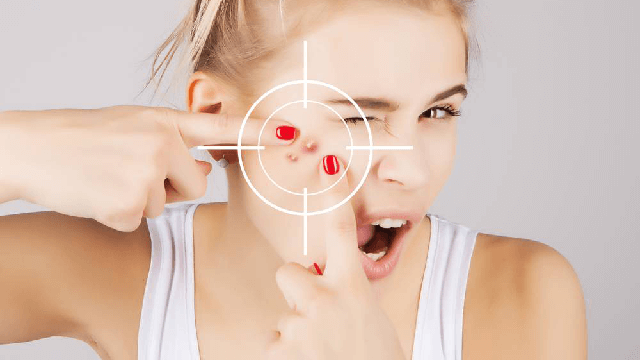Acne is a common skin problem that affects many young people, and causes pimples and red spots to appear on the face and body. The effect of acne is not limited to the external appearance only, but can also leave negative effects on the skin, such as scars and dark spots.
There are many different treatments that can be used to treat acne, including topical preparations, drug treatments, and natural remedies. Topical treatments depend on the use of creams and ointments that contain effective substances that help remove excess oils and reduce inflammation, while pharmaceutical treatments depend on anti-inflammatory drugs and hormones.
If you suffer from acne, prevention is the best way to avoid its appearance, by maintaining skin hygiene, using appropriate skin care products, and avoiding exposure to acne-causing factors such as stress and unhealthy nutrition.
In this article, we will talk about the best treatments for acne and avoid its negative effects on the skin, and provide tips and advice to maintain the health of your skin and avoid acne.
What is acne
Acne (or pimple acne) is a common skin problem that affects many people, especially teenagers and young adults. Acne results from clogging of the oily pores in the skin due to the accumulation of sebum, dead cells and dirt, which leads to the formation of infections in the skin and the appearance of pimples and pimples.
These pimples and grains appear mainly in the face, neck, back, shoulders and chest, and their shapes, sizes and colors differ from one person to another, and may leave negative effects on the skin such as scars and dark spots.
The main causes of acne depend on the accumulation of sebum and dead cells in the sebaceous pores, and the possibility of acne increases in people who suffer from hormonal disorders, especially during adolescence and young adulthood, when male (testosterone) and female (estrogen) hormones are at their peak. Some external factors such as exposure to pollution, stress, eating greasy foods, and the use of some types of inappropriate skin care products can also increase the likelihood of acne.
What are the symptoms of acne
- Blackheads: Small black or dark-colored bumps that appear on the surface of the skin.
- Whiteheads: Small, white or flesh-colored bumps on the skin.
- Pimples: Small red bumps that may have a white or yellow center.
- Papules: Small, red, raised bumps on the skin.
- Pustules: Inflamed, pus-filled bumps on the skin.
- Nodules: Large, painful bumps that form under the skin.
- Cysts: Large, painful bumps filled with pus under the skin.
- Scarring: Acne can cause scarring, which may be permanent.
The causes of acne and how to prevent and treat it to get a healthy complexion
1. Causes of acne
2. How to prevent and treat acne for healthy skin
- Maintaining skin hygiene on a daily basis by using products suitable for skin type.
- Avoid using fatty products and heavy oils that increase the possibility of acne.
- Maintain a healthy diet and avoid eating fatty foods, sweets and fast food.
- Avoid excessive stress and stress, and exercise regularly.
- Using topical skin care products that contain effective ingredients to reduce inflammation and remove excess oils.
- Use of anti-inflammatory drugs and hormones prescribed by the doctor if the condition is severe.
- Avoid touching the face with hands frequently and do not squeeze pimples or pimples.
- Avoid exposure to the sun directly and use sunscreen.
- Get enough sleep and avoid staying up late.
- Refer to the specialist doctor if the condition does not improve after using topical treatments.
The best natural acne treatments and how to use them effectively
- Honey: Honey has antibacterial and anti-inflammatory properties. It can be used as a mask on the face for 10-15 minutes, then rinsed with warm water.
- Lemon: Lemon contains lemonic acid, which helps exfoliate and clean the skin. It can be used by placing lemon slices on the face for 10-15 minutes, then rinse with warm water.
- Chamomile: Chamomile has anti-inflammatory and irritating properties, and it can be used by boiling a teaspoon of chamomile in a cup of water for 5-10 minutes, then straining and using the solution to clean the face.
- Tea tree oil: Tea tree oil contains antibacterial and anti-inflammatory properties, and it can be used by placing drops of oil on the affected grains, and leaving it for 15-20 minutes before washing it with warm water.
- Aloe Vera: Aloe vera gel contains anti-inflammatory and irritating properties, and it can be used by applying the gel extracted from aloe vera leaves on the face for 10-15 minutes, then rinse with warm water.
- Vital yeast: Vital yeast contains vitamins, minerals, and proteins that help regenerate skin cells and treat acne. It can be used by mixing a teaspoon of yeast with warm water to form a paste, then apply it on the face for 10-15 minutes before washing it with warm water.

